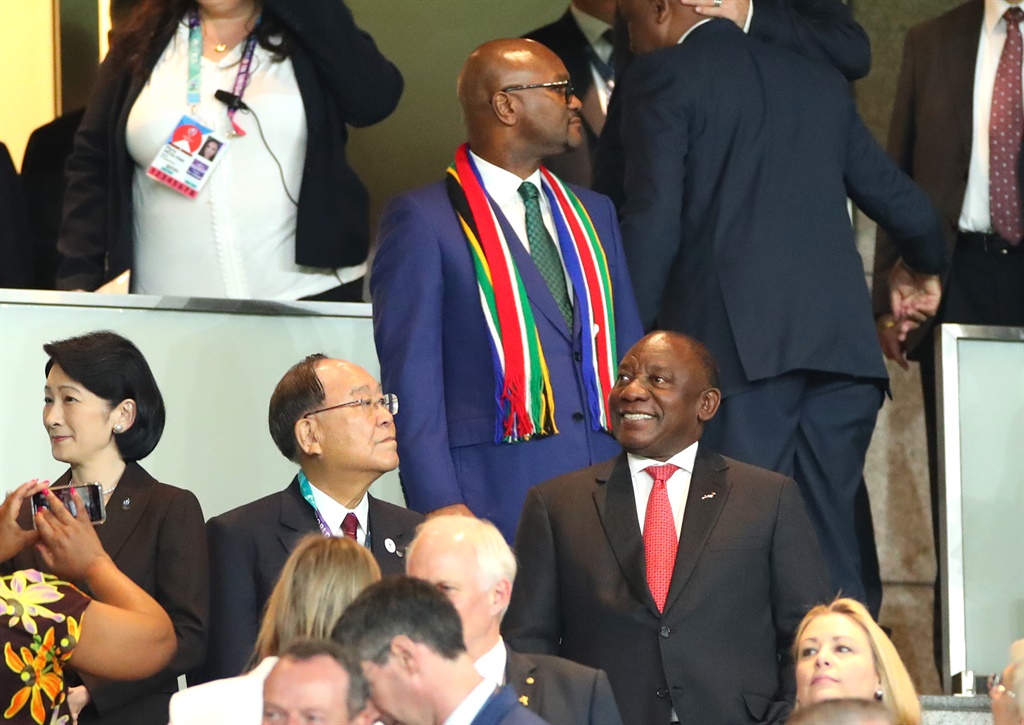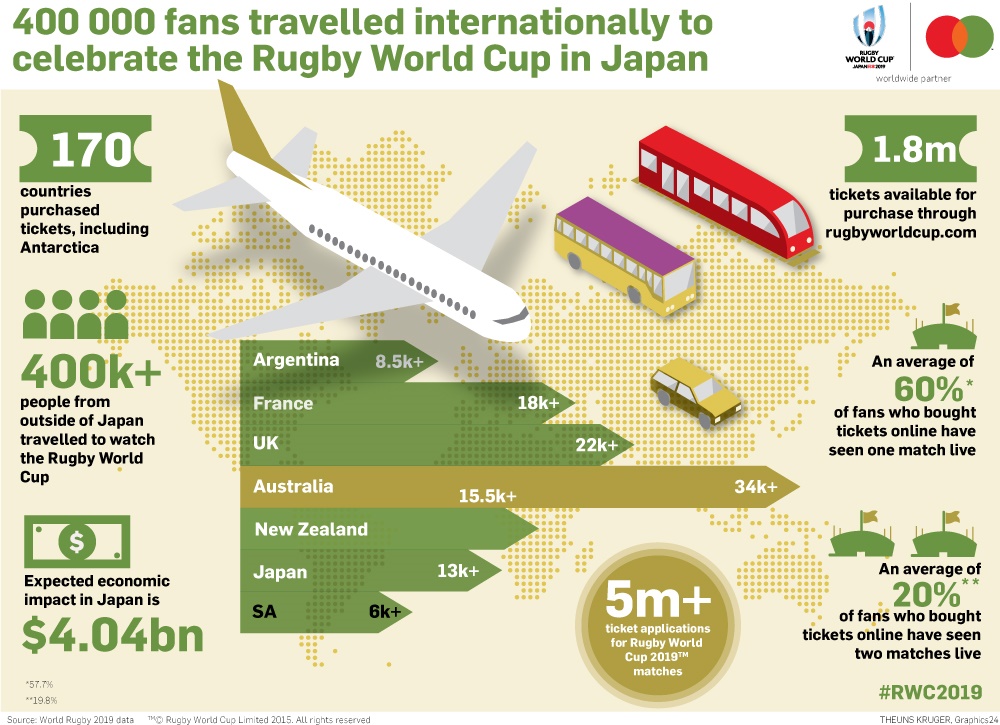
The story begins on the afternoon of September 21. The queues outside Yokohama Stadium are snaking, but the gates are closed. Opening time is 3.45pm and the ever-efficient Japanese are not going to open a second earlier.
As the clock ticks closer to opening hour, there is some movement at the gates. At 3.40pm, all the staff are standing ready.
The seconds tick by slowly. At 3.44pm the gate-minders all stare at their watches, waiting for a whole minute.
Tick tock, tick tock. As the clock strikes 3.45pm, the gates fling open.
On the giant screen in the fan zone inside the stadium, Namibia is being pummelled by Italy in far away Honazoni.
The minions are the favourites among the crowd that has come to see South Africa take on New Zealand.
When the game begins, the Springboks are the crowd favourites, with New Zealand being egged on by its own fans and rent-a-crowd Japanese supporters dressed in All Blacks colours and wearing Maori face paint.
It is not to be a good day.
The pre-tournament favourites play the Springboks off the field and plant lots of doubt about the excellent build-up to the World Cup, which culminated in clinching the Rugby Championship in the winter.
Good reason to turn to beer and sake for consolation. Luckily, it still tastes good despite the disappointment.
It would later transpire that the events of that afternoon in Yokohama were deceptive.
On Friday, the All Blacks were in the play-off against Wales for the bonze medal, while the Springboks were in yesterday’s final. Good reason for more sipping.
This year’s Springbok journey was palpably different from many of those that came before.
It took this lowly newspaperman’s mind back to 1995, when he watched the final against the All Blacks in a lounge crammed with South Africans supporting the opposition.
There was a solitary Springbok supporter in this crowd of mostly former activists. Apartheid was still fresh in the mind and – despite Nelson Mandela’s best efforts – the Springboks were still closely associated with that era.
When the Springboks lined up for the national anthem, someone in the room quipped that if you locked the whole squad up in a cell, one of them would eventually reveal the truth about what happened to disappeared activist Stanza Bopape.
Subsequent World Cup campaigns were different as the team was embraced more universally.
By the time John Smit’s lads clinched the 2007 edition in France and hoisted then president Thabo Mbeki up high, there was a greater sense of nationhood around the team.
But there is something about this year’s tournament that has properly galvanised South Africa behind the Boks. It could be our need to escape from the economic gloom and toxic political climate.
It could be that this is a truly South African team whose selection was not marred by political and racial bickering, with neither opportunistic politicians nor right-wing bigots trying to sour the moment.
It might be the dismal state of Bafana Bafana, who are as adept at bringing joy as Theresa May was at delivering Brexit.
It could be that we have matured to the point where a national team is just a national team.
Or it could just be that the boys are playing damn good rugby, the sort that warms the heart.
On the streets of Tokyo and in the pubs of Johannesburg on the night after the loss to the All Blacks, South Africans shared a common pain.
On the day the Springboks taught the stubborn, creative and nippy home team a rugby lesson in the quarterfinal, the nation whooped together in joy. The scene in the stands of Tokyo Stadium were enough to dim any cynism about our common South Africanness. The songs being sung in the stands were not your typical Loftus anthems, but popular township folk songs, with Ntando’s singalong Masambe Nono being the dominant one.
Even those who were hearing it for the first time and whose genes deprived them of rhythm sang and danced as if they had grown up with the song. The post-match happiness reverberated across the nation.
Last Sunday, with Wales standing between the Springboks and the final, the malls were reportedly deserted between 11am and 1pm.
The nation erupted with volcanic joy when the final whistle signalled a date with glory.
It can hereby be confirmed that even those who wanted to lock up the 1995 Springboks until they confessed to their assumed crimes were at one with the boys in Japan.
Some are even proud owners of Springbok jerseys, an unthinkable prospect not so long ago.
The Springboks have travelled a long way to be the team that can glue the nation together the way they have done in the past month. It would be a tragedy if we were to let this moment of unity be just that – a moment.
We have had such moments before and let them go to waste. This should be a foundation for a sustained project of rekindling the spirit of cohesion, something sport does so well.
When we go back to our little corners we should not retreat to our old habits.
Rugby in particular has an obligation to ensure that citadels such as Loftus cease to be the places where black people feel like intruders.
An unlikely hero in the form of Rassie Erasmus showed that transformation should not be a bitter pill, but rather a natural formula for success.
In doing so, he created a national spirit that will be hard for other sporting codes to emulate in the near future.




 Publications
Publications
 Partners
Partners









